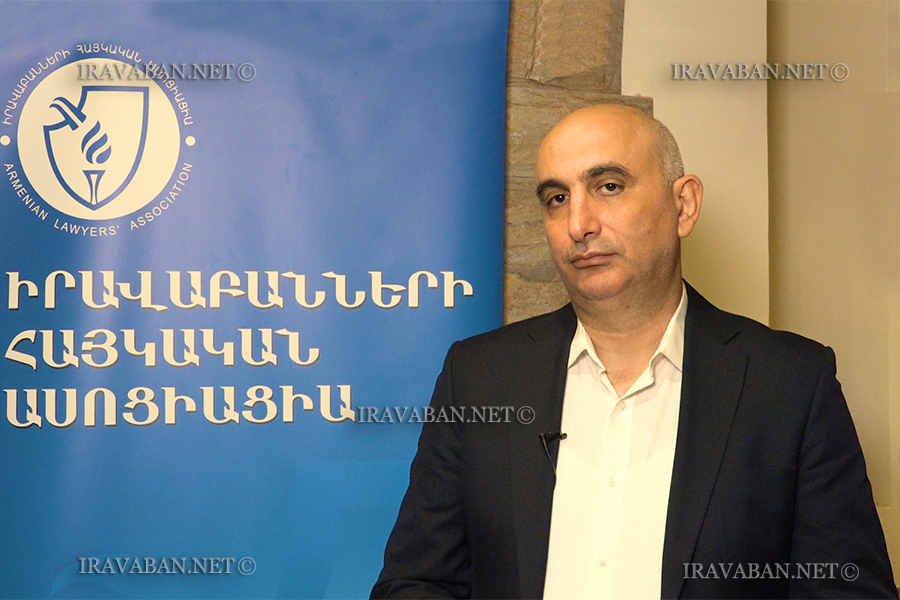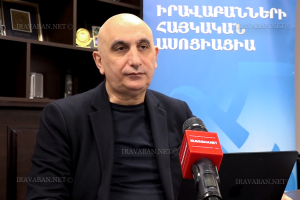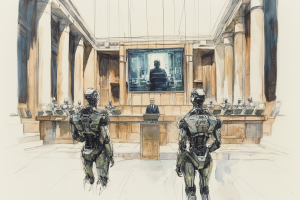At the expert online workshop on the study “Integrity Checking and Responsibility of Judges under the extraordinary conditions (of transitional justice): International experience and mechanisms for implementation in Armenia” organized jointly by the CSO Anti-Corruption Coalition of Armenia, and Armenian Lawyers’ Association (ALA), which was held on 8 November, Karen Zadoyan, President of the Armenian Lawyers’ Association, presented four proposals on checking the integrity of judges in the framework of the forthcoming Constitutional reforms.
“The 1st is integrity checking of judges and the Corruption Prevention Commission. We envisage three criteria. These are international standards: checking of assets, checking of suspicious connections (these connections may include criminal, corruption, political connections, etc.) and checking the knowledge and skills.
It is very important to create a constitutional basis for the integrity checking of the Corruption Prevention Commission and the Judges. This is where our reality is a little different from the international experience. International experience says that the vetting of all judges should be carried out by a body to be created for that purpose. We say that we should create an institutional constitutional tool that has less to do with transitional justice and more to do with systemic judicial reform.
To this end, in the first stage of integrity checking of judges, the ad-hoc constitutional bodies to be established for this purpose should check the integrity of the members of the Corruption Prevention Commission, because it has the most important function to check the property, income, expenses of judges, but that Commission was formed as a result of clear political agreements. In other words, this is not an independent and impartial body that should carry out the vetting of judges until the members of the Commission themselves have been vetted. That is why the members of this Commission must undergo vetting first, the assets, suspicious connections, knowledge and skills of all members of the Commission must be checked, and only after that this body will have the right to check the integrity of judges,” Karen Zadoyan said.
According to him, it is also very important that in the first stage of checking the integrity checking of judges, parallel with integrity checking of the members of the Corruption Prevention Commission, the integrity checking of all members of the Supreme Judicial Council should be carried out as well, because there are reasonable suspicions that the members of the BDK also have political affiliations with the former and current political authorities.. With the former and current political authorities. In the same way, in the first stage of integrity checking of the judges, the judges of the Constitutional and Cassation Courts must pass the stage of integrity checking as well. In the first stage of integrity checking of the judges, general speaking, it is about the integrity checking of about 40 people.
“There is no need to invent a new bicycle for the constitutional bodies to be formed for integrity checking of judges, as there is international experience and lessons learned in this regard. These bodies should be the Qualification Commission, the Appeals Board and the Public Commissioner, who will organize and oversee this process, and the above-mentioned bodies should be formed by ad hoc committees of the National Assembly, composed in equal 50-50% proportions of the ruling and opposition political forces.
In the second stage of integrity checking of judges, as a result of the implementation of constitutional amendments, the SJC, as part of its mandate of integrity checking of judges added to the list of its authority, will conduct a one-time integrity checking of all judges in other instances of the judiciary.
It is also very important that the restrictions on the appointment of a judge be reviewed, including the fact of existence of an act of an international court or other international instance with the participation of the Republic of Armenia, which records a violation of international obligations undertaken by the Republic of Armenia in the field of human rights protection as a result of the judge’s actions,” the ALA President said.
The 2nd proposal is that within the framework of the reform of integrity checking of judges, the reform of Judicial Code and other legislative reforms will be implemented, which will enable the preparation of new candidates for judges and the compilation of a reserve list of judges. All this will allow to find replacements for judges who left the judiciary system as a result of integrity checking, so that the whole process of integrity checking of judges runs smoothly and without shocks, unlike other countries that have conducted vetting of judges, such as Albania.
The 3rd reform concerns the consideration of the general regulation of the principle of prohibition of the retroactive effect on the analysis of declarations of property, income and interests of a judge.
“Pursuant to Clause 4.1 of Article 42 of the RA Law on the Corruption Prevention Commission, the provisions of this law on the analysis of declarations shall also apply to declarations submitted or subject to submission from 1 July, 2017. The definition of this term is conditioned by the criminalization of the crime of illegal enrichment in the Republic of Armenia, and in this case the application of retroactive effect is prohibited. In other words, it turns out that the CPC has the right to analyze the declarations submitted by judges after 2017. The Venice Commission also expressed its position on the application of retroactive effect in relation with these legal relations in 2019 within the framework of a joint opinion on the draft Judicial Code, which was adopted in 2020. In particular, Referring to the new rules on disciplinary liability of judges, the Commission stressed that in this process it is important that these new, changing provisions have no retroactive force, and that the Armenian legislature will consider the provision of the relevant regulation on non-application of retroactive provisions within the Judicial Code. In the framework of the conclusion, the Commission noted that the new responsibilities of judges related to financial declarations are acceptable (provided that they have no retroactive effect).
In both cases, the legal issue is related to the constitutional principle of retroactive effect (Article 73 of the Constitution of the Republic of Armenia), according to which ‘laws and other legal acts deteriorating the legal condition of a person shall not have retroactive effect’; and ‘laws and other legal acts improving the legal condition of a person shall have retroactive effect where these acts so provide for’. In fact, if the CPC analyzes the judge’s declaration submitted before 2017 and finds a violation, it cannot be processed by virtue of the above-mentioned law. Moreover, it is not possible to amend this provision either, as it will turn out that the amendments establish regulations that deteriorate the legal status of the judge, which is prohibited by the RA Constitution in terms of retroactive effect and also may lead to a violation of the principle of legal certainty. Actually, it turns out that the statute of limitations in the process of vetting (evaluation) of judges within the framework of transitional justice cannot be overcome by legal mechanisms, and the tools/procedures to achieve the goal must be legal to exclude inviolability of decisions and subsequent complaints against the Republic of Armenia to the ECHR. Therefore, it is recommended implementing the discussed changes in the context of constitutional reforms.
At the same time, it is necessary to conduct a more detailed and in-depth study, including in the context of international experience and acts made by international courts, and the international obligations undertaken by the Republic of Armenia, to find out whether it is legally possible to enshrine a general regulation of the principle of prohibition of retroactive effect in the Constitution. And at the same time define a transitional period in the second part of the same article in order to deviate from that principle, considering the issue of compliance of this regulation with the international obligations undertaken by the Republic of Armenia. At the same time, in the second part of the same article, define a transitional period in order to deviate from that principle, considering the issue of compliance of this regulation with the international obligations undertaken by the Republic of Armenia,” Karen Zadoyan said.
The 4th proposal is related to the review of the cases and terms of the disciplinary liability of judges. Pursuant to Article 144 of the Judicial Code, Proceedings with a view to imposing disciplinary action against a judge may be instituted: within a period of a year after detecting the violation, on the grounds of obvious and gross violation of provisions of substantive or procedural law while administering justice or exercising – as a court – other powers provided for by law. Disciplinary proceedings may not be instituted on the ground provided for by this point, where eight years have elapsed after the completion of judicial proceedings; except for the disciplinary proceedings initiated on the occasion provided for in Article 146, Part 1, Clause 4 of this Code. The above exception refers to the following cases of initiating disciplinary proceedings: Detection of an act containing an alleged disciplinary violation as a result of an investigation by an international court or other international instance with the participation of the Republic of Armenia, which records a violation of international obligations undertaken by the Republic of Armenia in the field of human rights protection. In this case, the Code does not provide for a special term other than one year in case of initiating proceedings on this occasion.
It should be noted that, in accordance with Article 58, Part 19 of the Law of 25.03.20 HO-197-N, disciplinary proceedings may be instituted on the occasion provided for in Article 146, Part 1, Clause 4, with the participation of an international court or other, on the basis of the acts made by the International Court of Justice after the entry into force of the law HO-197-N on 25.03.20. That is, the judicial acts made by an international court or other international instance before March 3, 2020, cannot be a reason to initiate disciplinary proceedings against the judge. Therefore, it is necessary to consider the possibility of reviewing the terms of the above-mentioned disciplinary liability. In order to solve the problem, the same constitutional amendments which are mentioned in the framework of the 3rd proposal, are proposed, “consideration of the general regulation of the principle of prohibition of the retroactive effect on the analysis of declarations of property, income and interests of a judge.
Then the President of the ALA added that in his opinion it is possible to revise by the Constitution the principle of prohibition of retroactive effect, as it is the sovereign right of the Republic of Armenia and its citizens.


















